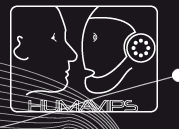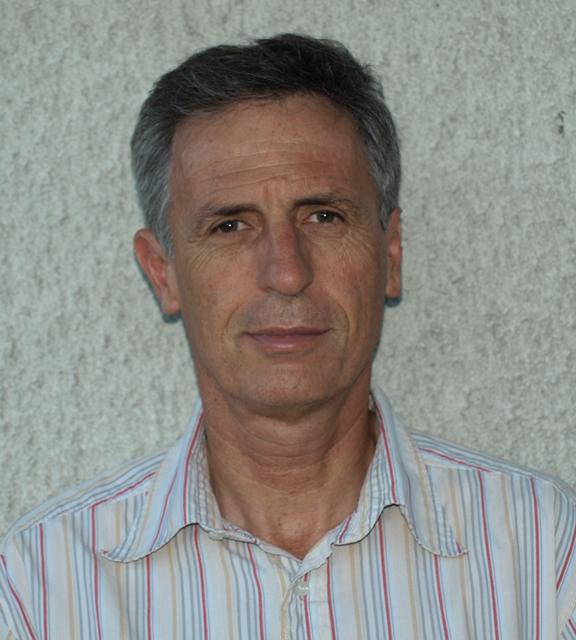 | Radu Horaud (PhD, University of Grenoble, 1981) holds a position of director of research at INRIA and he is the scientific leader of the PERCEPTION group. Radu Horaud pioneered work on object recognition using range data and on stereo matching using graph representations and heuristic-search techniques based on geometric constraints. He has contributions in visual sensor calibration, 3-D reconstruction, image-based robot control, graph- and point-matching, and human motion analysis. |
 | Florence Forbes (PhD, University of Grenoble, 1996) holds a position of senior research scientist at INRIA. Florence Forbes’ topics of interest and research activities include Bayesian decision theory applied to image analysis and multi-sensory fusion, Markov processes, Markov random fields, hidden structure models, as well as the development of methodological and algorithmic statistical methods such as Expectation-Maximisation (EM) techniques. |
 | Vaclav Hlavac(http://cmp.felk.cvut.cz/~hlavac). Professor at the Czech Technical University, Faculty of Electrical Engineering, since 1998. Head of the Center for Machine Perception since 1996. His research interests are in 3D computer vision, human motion modeling, relation between statistical and structural pattern recognition and industrial applications of machine vision. |
 | Tomas Pajdla, assistant professor at CTU since 1995, http://cmp.felk.cvut.cz/ ~pajdla. T. Pajdla has experience in geometry and algebra of computer vision, visual robot control, image matching, eye-hand calibration and coordination, precise digital optical measurements, photogrammetry, robot navigation using vision, image matching and object recognition. |
 | David Gouailler (PhD, Paris University, 2001) has expertise in robot locomotion and stability. He is one of the co-developers of NAO and is in charge of the robot’s kinematic hardware and software architecture. Previously, he worked with SONY’s AIBO for on obstacle detection and with HONDA’s HRP2 on stability issues. |
 | Vincent Meserette has 8 years of experience in acoustics, audio and signal processing. He has worked for industry as well as for public laboratories on hardware and software acoustic applications. He joined Aldebaran in 2009 to work on embedded audio software and hardware. |
 | Pierre Emmanuel Viel has a 6 years of experience in vision processing for automotive application and video suveillance. He has expertise in mixed architectures (DSP, FPGA, ARM, PPC, x86). Since 2008, he works on perception of the robot NAO. |
 | David Houssin is specialised in real-time design and has 9 years of experience in specification, design and development of real-time embedded systems. |
 | Rodolphe Gelin worked for 20 years at CEA (Commissariat Energie Atomique) as a researcher in robotics and had mainly been involved in robotic solutions for assistance of disabled people. He served as the head of robotics, virtual reality and cognitive program at CEA. He joined Aldebaran Robotics in December 2008. |
 | Jerome MONCEAU is specialized in software architecture. He has 5 patents and made several international publications on virtual acoustics. |
 | Jean-Marc Odobez (PhD 1994, University of Rennes, France) is a senior researcher at IDIAP. He has worked for several years on the development of statistical models applied to tracking, human activity recognition and multimedia content analysis. He is currently the Idiap Principal investigator (PI) of the VANAHEIM EU project and of several Swiss national projects. He has published over 90 journal and conference publications, and holds several patents. He is the co-founder of Klewel, SA, CH, a company active in the recording and automatic analysis of multimedia presentations. |
 | Daniel Gatica-Perez (PhD 2001, U. of Washington, USA) is a senior researcher at IDIAP. He has led research on audio-visual signal processing and social interaction analysis in meetings from sensor data for several years. |
 | Gerhard Sagerer received the diploma and the Ph.D. (Dr.-Ing.) degree in computer science from the University of Erlangen-N¨urnberg, Erlangen, Germany, in 1980 and 1985 respectively. Since 1990 he is a professor of computer science at the University of Bielefeld, Germany, and head of the research group for Applied Computer Science. His fields of research are cognitiveand perceptive systems, computer vision, speech understanding, intelligent systems, and pattern recognition in natural science domains. |
 | Britta Wrede received her Masters degree in Computational Linguistics and her PhD in Computer Science from Bielefeld University in 1999 and 2002, respectively. She received a DAAD PostDoc fellowship at the speech group of the International Computer Science Institute (ICSI) at Berkeley. She is currently working in the field of social and developmental robotics with the goal to enable verbal and non-verbal based communication with a robot. |
 | Sebastian Wrede received the diploma in computer science from Bielefeld University, Germany, in August 2002. Since 2009 he is heading the research group on Cognitive Systems Engineering at the CoR-Lab. His main research interests are software architectures for the development of cognitive computer (vision) systems and robotic systems. Further research interests are XML and database technologies as well as software and process modeling. |
 | Johannes Wienke [homepage] studied Cognitive Computer Science and Intelligent Systems at Bielefeld University. He received his Bachelor of Science in 2008 and the Master of Science in 2010. The title of his Master's thesis is "A Spatiotemporal Working Memory for Humanoid Robots". Inside the HUMAVIPS project, Johannes Wienke researches on the ideas of memory architectures with a focus on working memories. The research includes the functional benefits of appropriate memory models for robotic tasks and the application of memories for the system integration. |
 | David Klotz [homepage] studied Cognitive Computer Science and Intelligent Systems at Bielefeld University. He received his Bachelor of Science in 2008 and the Master of Science in 2011. The title of his Master's thesis is "Modeling Engagement in a Multi-Party Human-Robot Dialog". Inside the HUMAVIPS project, David Klotz researches ways of modeling interactions between groups of people and robotic systems, focusing on dialog abilities. The goal of his research is to derive appropriate interaction strategies for the robot to act successfully in these types of multi-party interaction scenarios. |
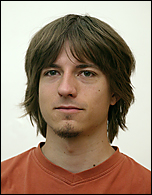 | Lukas Cerman [homepage] Sixth year PhD student at Center for Machine Perception, Czech Technical University in Prague. He is specialized in image processing and video tracking. |
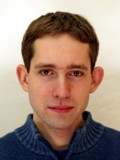 | Michal Havlena [homepage] received the diploma in computer science from Charles University in Prague in 2005. He is a Ph.D. student at CTU since then. His research interests are large scale Structure from Motion, omnidirectional vision, and robot navigation using vision. |
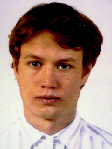 | Vojtech Franc [homepage] received Ph.D. (2005) degree in Artificial Intelligence and Cybernetics from the Czech Technical University in Prague. He is a research fellow at the CTU since 2008. His research interests are Support Vector Machines, structural classification and large-scale learning. |
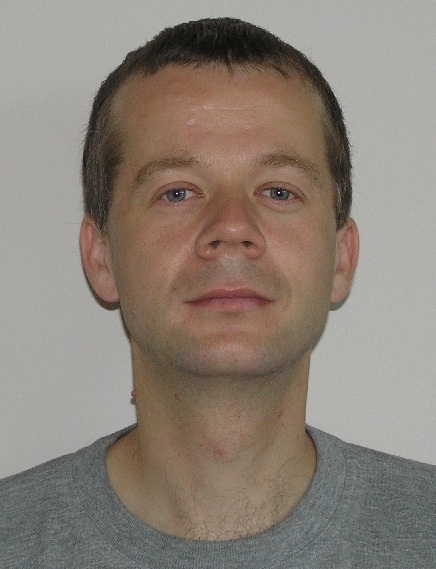 | Daniel Prusa [homepage] received Ph.D. (2005) degree in Theoretical Computer Science from Charles University in Prague. He is an assistant professor at the Czech Technical University since 2010. Ha has 10 years experience in software engineering. His research interests are formal languages and structural pattern recognition. |
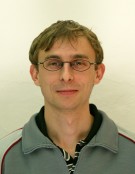 | Jan Cech [homepage] received Ph.D. (2009) degree in in Artificial Intelligence and Cybernetics from the Czech Technical University in Prague. He is a researcher in the PERCEPTION team at INRIA. His research interests include stereoscopic vision, 3D reconstruction, image understanding and interpretation. |
|
||
People |
||
|
Copyright © 2014 HUMAVIPS - All Rights Reserved |
||
